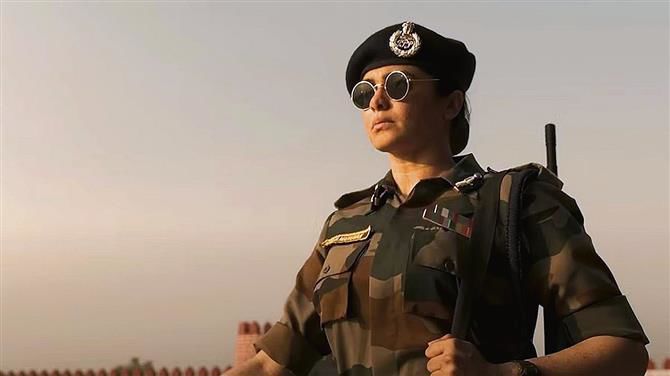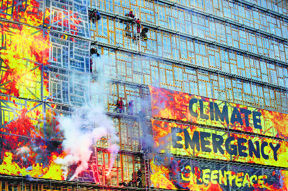This Naxal story doesn’t have any inkling of the origins of the conflict.
Film: Bastar: The Naxal Story
Director: Vipul Amrutlal Shah
Cast: Adah Sharma, Yashpal Sharma, Naman Jain, Shilpa Shula, Raima Sen, Anangsha Biswas, Vijay Krishna, Rahuul Chwudhary, Subrat Dutta, Indira Tiwari
Johnson Thomas
The opening disclaimer makes a tall claim that this film is inspired by true incidents, but there’s little evidence of it in the telling. The disclaimer is obviously a ruse to enable and justify acutely discomfiting and deplorable ‘creative liberties’. Following the success of ‘Kerala Story’, Vipul Shah, Sudipto Sen and Adah Sharma team up for what appears to be a propaganda story, aimed at a diatribe against ‘left liberals’ and their support base.
Right from the beginning, it becomes abundantly clear that the narrative here is designed to club together all recent anti-government protests and milk them to generate anti-national rhetoric. Unfortunately, the creators of this mash-up mayhem don’t have either the acuity or the research back-up to make this film even half-way interesting.
This Naxal story doesn’t have any inkling of the origins of the conflict or that it’s mostly regional and has to do much more with displacement rather than Marxist leanings. There’s no reference to the Naxalbari uprising of 1967. So you have Sudipto Sen (credited with the story) linking together ideology-governed elements, NGOs, their foreign funding, LTTE, Pakistani terrorists, grassroots activists, student movements, communists and professors of elite institutions as the network that this peculiar ‘deep fake’ movement feeds on.
When it comes to atrocities, the Naxals are shown as gruesomely blood-thirsty, chopping body parts and spilling blood like water, while the armed forces are only doing their duty by shooting down villagers and sympathisers.
Pregnant IPS officer Neerja Madhavan (Adah Sharma) is fighting a lone battle against the politicians and the Naxalites. She is so incensed by the Naxal attack on 76 jawans that she even ticks off the Home Minister for not acceding to her request for emergency intervention.
A parallel plot point highlights a court proceeding regarding a case against two left-leaning women professors whose writings, they claim, have proven to be fodder for the Naxal movement.
The Supreme Court’s ban on the Salwa Judum militia is mentioned briefly. The film attempts to present this ban as the result of a worldwide conspiracy. Words like ‘communist’, ‘leftist liberals’, ‘avenge’ and ‘revenge’ are bandied about quite freely. In fact, the film actually seems to justify extra-judicial killings and makes these seem heroic and necessary.
This is black-and-white posturing. The Naxalite insurgency and the ensuing conflict with security forces is depicted in a contentious fashion. The distinct lack of understanding of the complex socio-political realities and gung-ho posturing make it feel more like election campaign fodder.
A lack of nuanced character exploration, convenient oversimplification of issues and a disjointed narrative spiel pieced together to highlight a mother-son confrontation in the climax — this film falls short on every count.
The shortcomings in the narrative and inconsistencies in the story, screenplay and dialogue leave you distended and distressed by the insidiousness involved in this make-believe.














